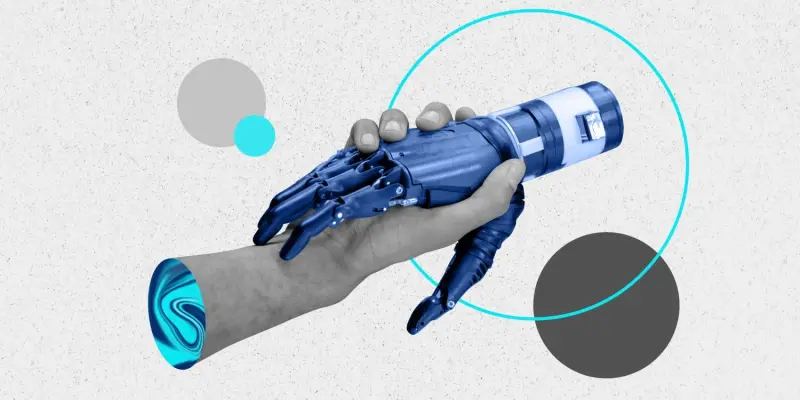The adoption of artificial intelligence (AI) in the insurance industry has sparked considerable debate, as it holds the potential to transform operational dynamics profoundly. The increasing shift toward AI-enabled systems among insurance carriers is being met with both enthusiasm and skepticism, particularly from independent agents and brokers who fear their roles might become obsolete. Though AI offers precision and efficiency, concerns persist that it could lead to a client shift towards carriers or insurtech firms boasting cutting-edge technology. Therefore, discussions about the role of AI must consider the balance between technological advancement and the essential human element that maintains client relationships.
Bridging Technology and Human Touch
The Value of Human Interaction
In the insurance sector, the significance of human agents cannot be overstated, and many professionals, including Garrett Droege of IMA Financial Group, argue for AI’s role in complementing, rather than replacing, human capabilities. He emphasizes that while AI can streamline processes and optimize tasks, the quintessential human touch is indispensable for client retention. Humans bring to the table an empathetic understanding of client needs, which technology alone cannot replicate. Thus, the industry must focus on developing tools that empower agents rather than render them unnecessary, ensuring that customer interactions remain robust and meaningful. Retaining the human element is imperative for sustaining trustworthy client-agent dynamics, which machines cannot achieve.
Max Kane from Novella shares a perspective that resonates with many independent agents, pointing out that human connections should be prioritized over technological sophistication. Independent agents value the ease of client service, focusing more on personal relationships than on advanced customer portals or digital solutions. Josh Curry from BMS Group echoes this sentiment, stressing that agents are fundamental to the insurance value chain for maintaining customer engagement and managing market conditions. He suggests that large firms leverage agents’ expertise and customer access rather than investing heavily in technological interfaces. This highlights the overarching belief that while AI can be a powerful tool, it should support and enhance the unique human relationships central to successful insurance practices.
Balancing AI and Human Engagement
AI’s increasing role in insurance requires internal governance and careful management to prevent biased decision-making, as noted by Jason Wrather of Grange Insurance. This governance involves implementing continuous assessment and evaluation of AI’s benefits and potential drawbacks. Ensuring algorithms remain unbiased and transparent is vital for maintaining fairness in AI-driven processes, preventing potential ethical concerns. The insurance industry must remain vigilant about AI’s impact on decision-making, training systems to align with human values and ethical standards, and fostering a collaborative approach between technology and human oversight to maintain integrity and customer trust.
Ryan Hanley from Linqura offers insights from the company’s AI deployment, pointing to initial issues that arose with users interacting with an unconstrained chatbot. These interactions highlighted the necessity of setting clear parameters to improve usability and satisfaction. This case exemplifies the ongoing challenge of blending technological prowess with user-friendly interfaces, affirming the importance of considering human input in AI solutions. Striking the right balance between innovation and human-centric approaches is imperative. As AI systems advance, ensuring they remain adaptable and cooperative with human roles is crucial, maintaining a symbiotic relationship that enhances productivity without diluting the essence of human agency.
Navigating AI Integration
Industry Perspectives on AI
While AI implementation promises greater efficiency, industry professionals advocate for a balanced approach to integrating AI alongside human agents. The goal is to recognize AI as a tool that enhances rather than substitutes human input. As stakeholders navigate the evolving landscape, the insurance sector must champion strategies that acknowledge the distinct value human agents bring to client relationships and market engagement. This involves creating support systems and training programs that equip agents with the necessary skills to adapt and thrive in an AI-enhanced environment. Collaboration between technology and human expertise is pivotal in reaping AI’s benefits while preserving the human touch in customer interactions.
This ongoing discourse reflects a broader recognition of how AI can augment the insurance sector by streamlining operations and improving accuracy. Yet, it underscores that the irreplaceable value of human intuition and understanding remains central to client satisfaction and effective risk management. To this end, AI is poised to become an integral ally in insurance, fostering increased collaboration between agents and advanced technology. Embracing AI’s advantages while retaining the irreplaceable human qualities ensures that relationships between clients and insurers remain personal, trustworthy, and engaging in a technology-driven future.
Looking Forward
The integration of artificial intelligence (AI) into the insurance sector is generating significant discussion, given its capacity to revolutionize operational processes. Insurance companies are increasingly adopting AI-driven systems, a move greeted by both enthusiasm and skepticism. Independent agents and brokers are especially concerned about the potential obsolescence of their roles due to these advancements. While AI promises enhanced accuracy and efficiency, it raises apprehensions about clients possibly shifting to carriers or insurtech companies equipped with the latest technologies. These discussions must address the delicate balance between leveraging technological progress and maintaining the crucial human interaction that fosters client relationships. As AI evolves, understanding its impact on the insurance landscape is imperative to ensure it complements rather than replaces the invaluable human expertise that is fundamental in building trust and understanding with clients, blending innovation with personalized service.

